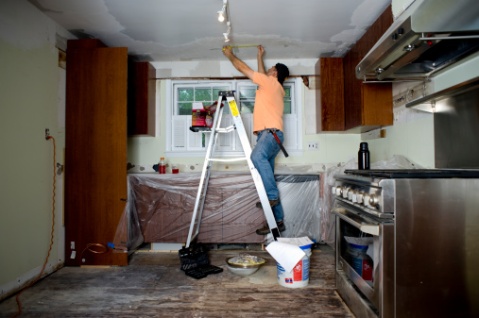Property market steaming ahead, says BetterBond
 The latest statistics from BetterBond Home Loans, SA’s leading mortgage origination group, show ongoing positive activity in the residential property market.
The latest statistics from BetterBond Home Loans, SA’s leading mortgage origination group, show ongoing positive activity in the residential property market.
The figures reveal a 12,05% increase in the number of home loan applications received by BetterBond in the month of June, compared with the same month of 2013, and a 9,23% increase in the value of applications submitted to the major lending banks.
They also show, notes BetterBond CEO Shaun Rademeyer, that there was an increase of 4,11% in the value of home loan approvals.
“In addition, in the 12 months to end-June, there was an increase of 4,19% in the total number of bonds for which we secured approvals, and a 6,57% increase in the total value of those bonds to more than R36,2 billion, compared to just under R34 billion in the previous 12 months.”
At the same time, he says, the number of applications initially declined by one bank but subsequently approved by others rose by 5,37% year-on-year, “which once again underlines the importance of working with a mortgage originator that will not only motivate individual applications, but is able to submit them to multiple banks in order to secure the best result for the prospective home buyer.
“This is further evidenced by the fact that there was an 8,66% increase during the 12 months to end-June in the number of bond applications rejected by the borrowers’ own bank, but then approved by other banks. The total value of these ‘rescued’ applications was over R5 billion.”
The BetterBond statistics also show that the average home purchase price has increased by 10,5% over the past 12 months to R908 483, and that the average first-time home purchase price has increased 7,65% to R641 979.
Meanwhile, the average approved bond size has increased by just over 2% in the past 12 months to R756 479, and the average bond approved for first-time buyers has increased by 0,5% to R586 328.
More good news is that the average percentage of purchase price required as a deposit has shown a 3,64% decline year-on-year, while the average percentage of purchase price required by first-time buyers has declined by 6,2%.
“In short, we are seeing solid buyer confidence reflected in still-growing demand and home prices,” says Rademeyer, “and increased lender confidence in the market, although their credit criteria are stringent.”
How to choose an estate agent when selling your home
If you are trying to sell your property, it is important that you make use of the services of an informed, professional estate agent to get the best out of your deal and ensure a hassle free process.
Here are the some important tips to keep in mind when selecting your estate agent:
- Choose a few potential estate agents based on feedback from friends and relatives, colleagues, websites, etc. While making a short list, focus on the agents’ experience. Find out some information on their background, what deals they’ve closed and how they would deal with your property sale if it was not selling as hoped.
- Interview all the short-listed estate agents, and gather information about their experience and credentials. Someone who has taken the time to qualify with related qualifications and has membership of professional organisations/bodies may help you negotiate a better deal and provide a better service.
- Are you and the agent compatible? You’ll be doing a lot of communicating with your agent and this compatibility will make the process a lot easier in the future.
- Choose an agent you can trust. Look for enthusiasm, dedication, creativity and market savvy. All of these will translate into extra efforts and you’ll definitely stand to benefit from that.
- Know the team. Estate agents will have employees who will be equally representing yourself and the property sale. They should also be skilled and able to converse and communicate intelligently about all the details involved in your property transaction. Make sure whoever you are dealing with respects you and your time.
- Make sure your estate agent understands exactly what you want, and that he/she is capable of achieving that. That said, also make sure your expectations are realistic. An estate agent who offers a figure lower than you had envisaged may be giving an honest appraisal and not just telling you what you want to hear.
- Choose an estate agent who has outstanding negotiation skills, personality, and charisma. A good estate agent will first look to satisfy your target price, not that of the buyer.
- Consider estate agents who are able to offer multiple advertising opportunities (including advertising on the internet) and in-house arrangement of property inspections.
- Remember: Higher fees do not always represent better service.
- Examine the contract closely and fully understand what you are committing to.
Good luck finding the right estate agent for you!
BetterBond’s ‘Dream Bigger, Live Better’ Lottery
BetterBond wishes to make the dreams of our loyal agents, developers, and principals come true. We have committed over R1 million to changing the lives of our supporters.
Through the BetterBond ‘Dream Bigger, Live Better’ Lottery, BetterRewards members can win their share of R100 000 every month!
We have already started changing the lives of our own staff:
- Anthony took his whole family away on holiday.
- Burda financed the recording, producing, and releasing a CD of her sister’s beautiful music.
- Jennerwade helped her family and community by buying clothes for her sister’s children, and paying for a young boy’s funeral at her church.
- Aubrey broadened his horizons, using his winning dream to go on holiday and fly in an airplane for the very first time.
- Suraya invested in her son’s education.
Now it is your turn.
To participate, follow the steps below:
- Make sure that you are a BetterRewards member – call us on 0115165500 or speak to your BetterBond consultant
- Send us your OTPs and registrations – the more you submit, the better your chances of winning
- Send us your dream through one of the following mechanisms:
- Postcard in launch pack delivered by your BetterBond consultant
- Email: dream@betterbond.co.za
- SMS: “my dream is…” to 32015
- Rewards Portal: http://www.betterrewards.co.za
- BetterBond App – Android and Apple
Winners are selected through a random draw.
The more OTP’s and Registrations you submit, and the more dreams you send us, the better your chances of winning.
Live your dream with BetterBond today!
Don’t get burned on bricks-and-mortar insurance
Everyone who owns a home – whether it is still bonded or they have already paid it off – should check at least once a year to see that they have enough home insurance (HOC) to cover the total cost of replacing it if it is destroyed by fire, flood, or other disaster.
So says Shaun Rademeyer, CEO of South Africa’s leading mortgage origination group BetterBond, who points out that if your home is under-insured, as it may well be if it has increased in value since you bought it or if you have made additions and alterations, you could be in for a big financial blow if something untoward happens.
“Taking the example of a home bought 10 years ago for R500 000, this may well have doubled in market value to R1 million now, and will no doubt have an even higher replacement cost due to the fact that building costs have increased substantially in the meanwhile.
“According to Absa, for example, the cost of building a new home is currently 37% higher, on average, than the cost of buying an equivalent pre-owned home.
“But if the HOC has not been adjusted, it would only cover the original R500 000 cost of the property, so the ‘under-insured’ component of the replacement cost in the event of a disaster would be a whopping R870 000 – which the homeowner would have to pay himself. And that does not include the additional cost of any demolition that may be necessary, architects’ and other professional fees, and new local authority connections.”
Insufficient HOC, he says, is one of the unintended consequences of one of the lesser-known provisions of the National Credit Act (NCA), which is that home buyers are not obliged to obtain their HOC from the bank that grants their home loan.
“Homeowners are now free to source their HOC from other insurers, but if they do, they pretty much have to accept the responsibility for updating it themselves, much as they have to manage their own car insurance and home contents insurance to ensure that their belongings are adequately covered.”
It is also important, Rademeyer says, for those who have paid off their homes not to let their HOC fall away. “Just because you are no longer making monthly bond repayments does not mean that you should stop paying HOC premiums.
“In fact, as you get older, and especially if you are retired and living on a fixed income, it is even more important to ensure that your home is fully insured and that you would be able to replace it if necessary.”








